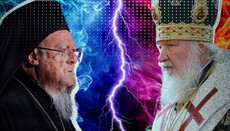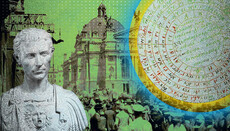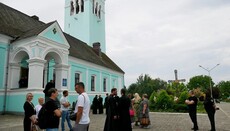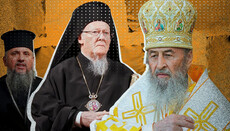Resounding emptiness: why OCU churches remain without parishioners
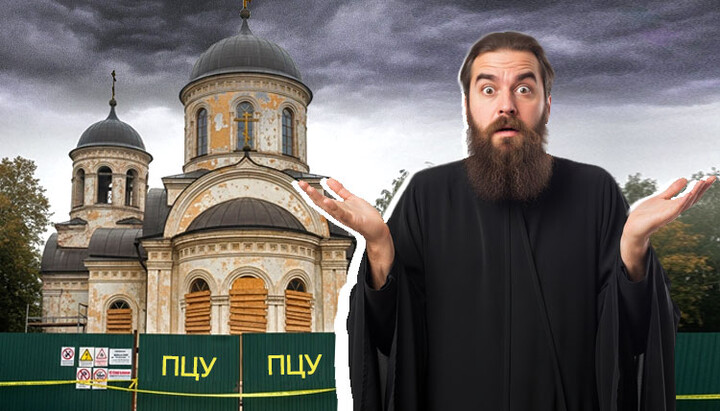
On the New Style Dormition, the main feast of the Kyiv-Pechersk Lavra, the OCU has to bring parishioners by buses. Why don't parishioners come there on their own?
On August 15, 2025, the head of the OCU, Epifaniy Dumenko, held a solemn "Liturgy" at the Kyiv-Pechersk Lavra. On this day, the Churches following the New Calendar celebrated the Dormition of the Most Holy Theotokos. Dumenko’s structure also observed this feast. It should be noted that the Dormition is a special day for the Ukrainian people. It is enough to recall that all three Lavras located within our country are dedicated to this feast. Thus, in the Kyiv Pechersk Lavra, the Dormition of the Mother of God is also a patronal feast. Naturally, for a structure that positions itself as the “people’s Church,” such events are of particular importance. It goes without saying that on the feast of the Dormition, the Kyiv-Pechersk Lavra should be full with parishioners. But reality turned out to be quite different.
The Lavra grounds, which before the expulsion of the UOC barely accommodated all those wishing to pray, was practically empty.
Moreover, the main church of the monastery, the Dormition Cathedral, also remained unfilled — there was plenty of free space, which was unimaginable in previous years.

At the same time, there would have been even fewer believers if not for the people whom the OCU representatives brought from the regions on special buses.
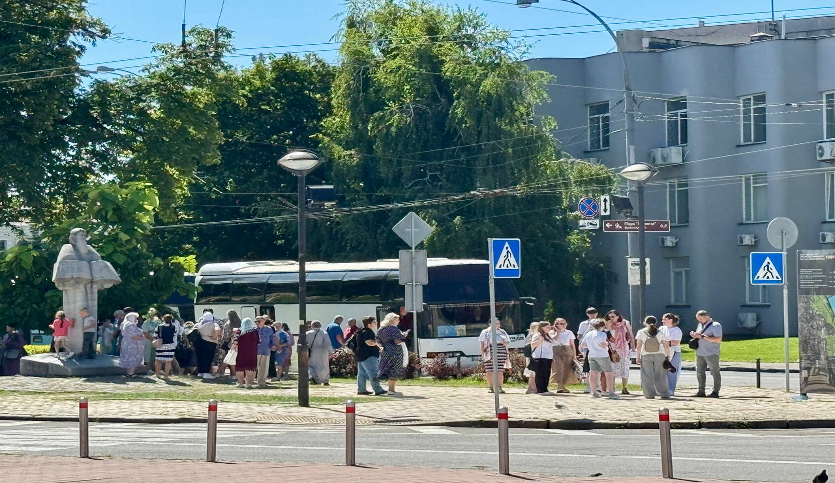
Footage from the internet, taken on the morning of August 15, before the arrival of these buses, shows that without the "delivery" of parishioners, there would have been no more than a dozen at the Dormition Cathedral.
In fact, that was about the same number as attended the festive “all-night vigil” at the Dormition Cathedral on the eve of the main patronal feast.

It should be noted that the all-night vigil is an integral part of a festive or Sunday service. Yes, usually somewhat fewer people attend it than the Divine Liturgy. But there cannot be only ten people standing at the all-night vigil of the patronal feast in the main shrine of a “local Church”. That just doesn’t happen.
However, let's return to the festive "Liturgy." Some might say that in the past, the UOC eparchies also organized buses for trips to Kyiv. They did but only for the Feast of St. Prince Vladimir, and that was due to the procession. For the Dormition, such a thing has never happened.
So why can't the OCU, claiming nationwide support, demonstrate this support? What is the problem?
Meeting "by directive"
Before answering this question, it should be noted that the emptiness of OCU churches is a widespread phenomenon, not an isolated case. And this applies not only to Kyiv but also to regions of Ukraine traditionally considered very religious.
For example, a few weeks ago, Epifaniy Dumenko made his first "archpastoral" visit to the newly created Kamianets-Podilskyi Eparchy of the OCU to consecrate the cathedral there. Agree, this event cannot be classified as ordinary — the "Primate of the local Church" is going to his flock, which in this region numbers no less than half a million. In the end, there were only about a hundred people who wished to meet Dumenko. And most of them were public sector employees: teachers, doctors, officials, who were organized to make up the numbers. Some of those present definitely were not church-goers, as seen even by their clothing. Some women stood in trousers, without headscarves, and even without crosses.
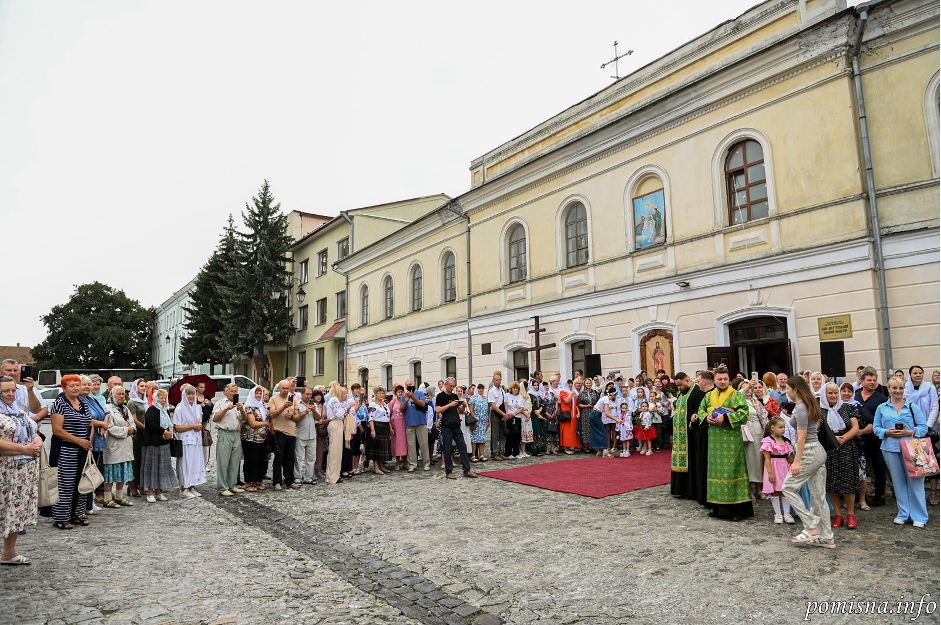
In fact, this is a very telling moment. The true Church does not need administrative mobilizations: people go to church themselves, stand in the cold or heat to venerate the holy relics or pray with their primate. In this situation, as in the Lavra on the Dormition feast, there were very few people without administrative resources.
Emptiness the next day
But even more eloquent was the "hierarchical Liturgy" served by the Kamianets-Podilskyi "bishop" of the OCU the following Sunday. The consecration of the cathedral by Epifaniy Dumenko took place, ceremonial photos were taken, high Kyiv guests left. An ordinary Sunday came – and the church was empty.
This is the main day of the week for Orthodox Christians, a day when believers definitely go to the Liturgy, often with the whole family. But in the newly consecrated OCU cathedral, there was resounding emptiness.
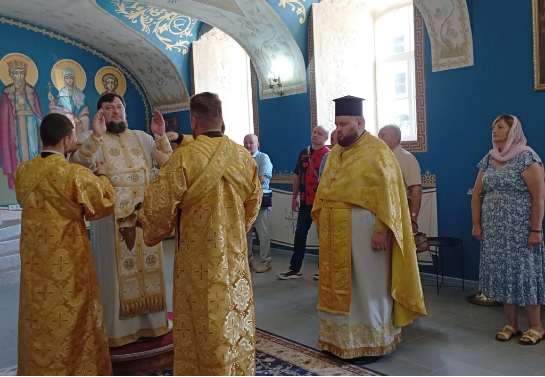
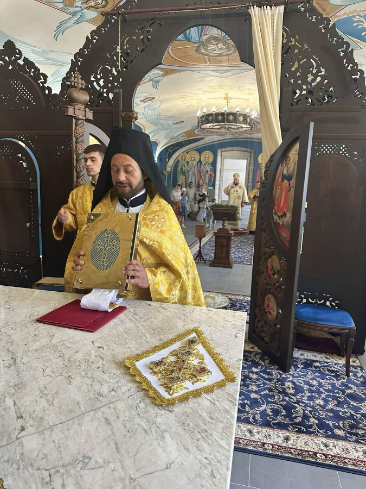
Sunday service. Photo: OCU press service
The same scenario repeated on the Day of the Lord's Transfiguration. Usually, this feast gathers so many people that the church cannot accommodate everyone – apples and grapes have to be blessed outside. But the Kamianets "bishop" of the Dumenko structure had no problems with a lack of space in the church:
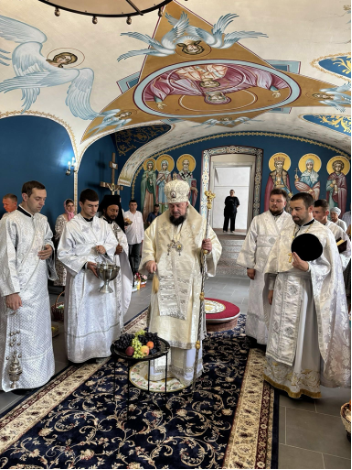
Sunday service. Photo: OCU
Moreover, even with Epifaniy in Kyiv, during the service on the feast of the Transfiguration, there was space left in the church: there were few people, and there was simply no need to go outside.
OCU leadership’s illusions
So, we return to the question: why is this happening? In our opinion, it is because the leadership of the OCU bases its activities on illusions and misconceptions.
The fact is, Dumenko’s representatives think: “If we take over UOC churches, people will come because they’ll have nowhere else to go.” But as we see in practice, the seized temples remain empty or half-empty. In other words, people go to church not simply because it’s a church building, but in search of something more, which means a mere “change of affiliation” leads to nothing.
“If we serve in the Ukrainian language, the people will come,” Dumenko’s associates believe. But in reality, language is not the deciding factor. People don’t go to church just to hear the Ukrainian language, they are drawn by something beyond that.
Look at the number of people in the Pochaiv Lavra. This is a fully Ukrainian-speaking region. If Dumenko’s logic held true, they should all be in the OCU or the UGCC. But they’re not. They prefer to hear Church Slavonic.
.jpg)
In its attempts to draw people into its churches, the OCU is willing to try almost anything. For example, they were convinced that “if we adopt the new calendar, people will come,” because they believe people no longer want to pray on the same dates as Moscow. But in reality, the calendar is just an external form. If there is no living communion with God, no change of dates will revive spiritual life.
Similarly, OCU members believe that the UOC has so many faithful because of the holy relics — miracle-working icons, the relics of saints, and so on. That’s why, within the OCU there is an illusion that “if we take over the Kyiv-Pechersk Lavra or the Pochaiv Lavra, people will have no choice but to come to our services.” But again, people don’t go to the Lavra just for the buildings, or even for the relics – they come for prayer, for that spiritual atmosphere which has been built up over centuries in the monastery. If it is destroyed, pilgrims will stop coming, and no icons will help.
For this very reason, all of the illusions and misconceptions held by the OCU leadership are simply attempts to “rearrange the settings” — without addressing the Church’s primary mission: the salvation of souls.
The answer to why people don’t go to the OCU is very simple: people are looking for God in the church. Neither slogans, nor “statehood”, nor new calendars, nor patriotism. They want prayer, communion with God, and participation in the Sacraments. It was this that kept millions of Orthodox faithful in the Church even during the Soviet persecutions, when simply going to church could cost one their job or even their freedom.
The Church as the Body of Christ, not a social project
The main mistake of the OCU leadership is that they perceive the Church as a “project” that can be managed like a social or political organization. Their logic is simple: if you “market the product” correctly (change the language, calendar, style of communication, clerical hats, and vestments), then the “client will come”.
But the Church is not a project, nor is it a corporation or a tool of state policy. The Church is the Body of Christ. It is a community of people united by faith in God and the Sacraments. And that means where there is no true spiritual life, there will be no people, no matter how beautiful the facade may look.
Let us recall history. When the Bolsheviks created the “Renovationist Church” in the 1920s, the Renovationists had the full power of the state behind them. They had churches, the press, and government support. The persecuted Church had nothing but prayer and faith in God. Yet, it was that Church that drew the people; its churches were overcrowded, while the “Renovationist” ones remained empty.
Today, the situation with the OCU largely repeats the same scenario. The government, media, and opinion leaders all support and promote Dumenko, but people still do not go to the OCU. They don’t go because political slogans can never replace prayer, and no matter how loudly you shout “Glory to Ukraine!”, the whisper “Lord, have mercy” will always sound louder before God.
The OCU and Krylov’s fable
In fact, the situation with the OCU is best described by Ivan Krylov’s famous lines: “No matter how you sit, my friends, you’ll never make musicians.”
Dumenko and his circle simply fail to understand that music doesn’t depend on how the players are seated. If you don’t know how to play the violin or the cello, switching your stool for a luxurious chair won’t help. It’s the same with Christianity: it’s not clothing, not the calendar, not language, and not even relics that make a person a Christian, but a life lived with God. Yes, the OCU can change its rhetoric, shift emphases, and seize churches in the hope that people will start coming. But until they realize that spiritual life is built on entirely different foundations, all of this will remain mere imitation.
That’s why the absence of people in OCU churches is neither a coincidence nor a “management error”. It is evidence of a deep spiritual crisis. People can sense where the true Church is and where it is only a substitute. The people go where they feel the presence of God. And that is why, despite all the support from the authorities, the OCU remains a structure without the faithful.
